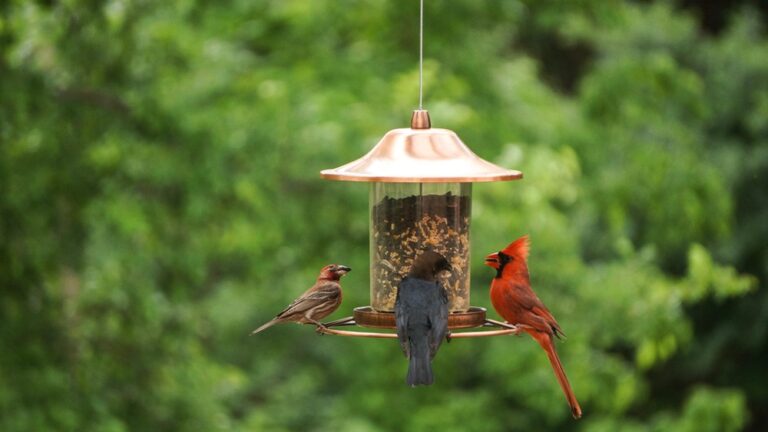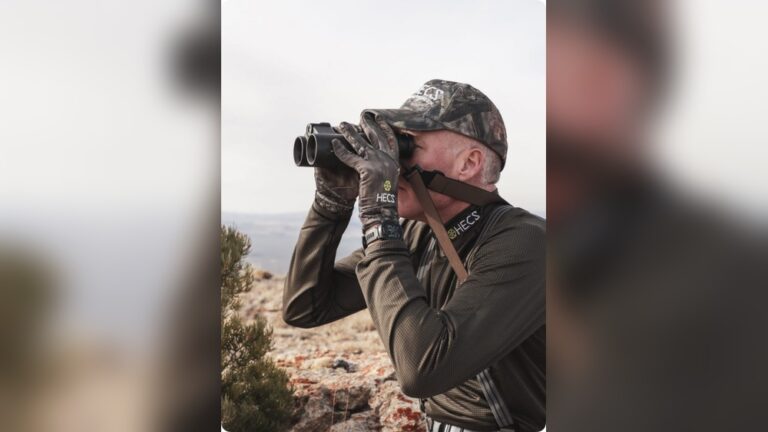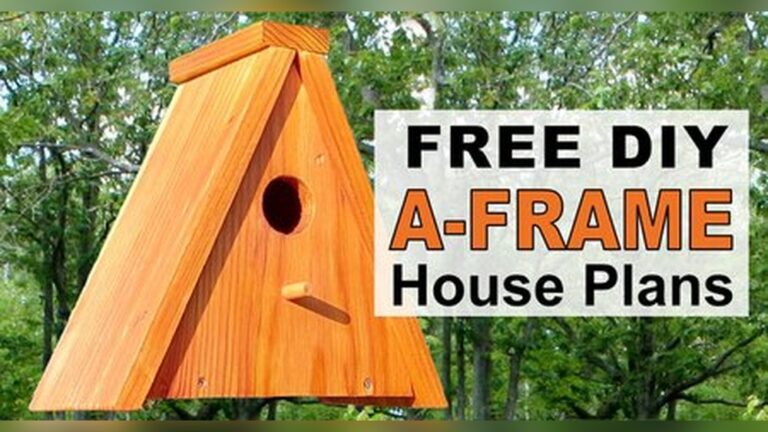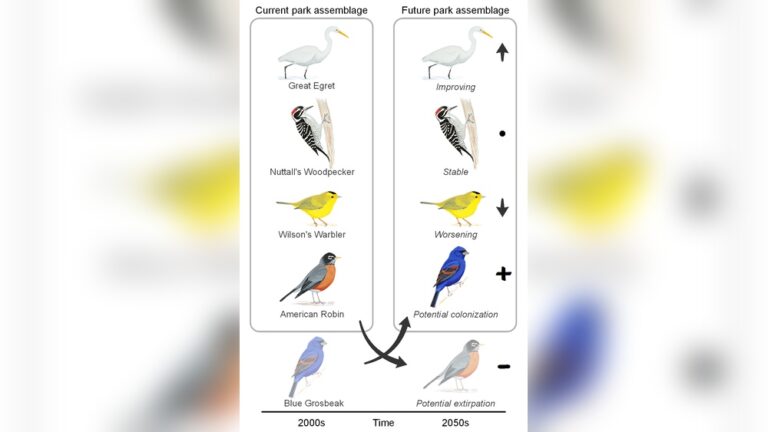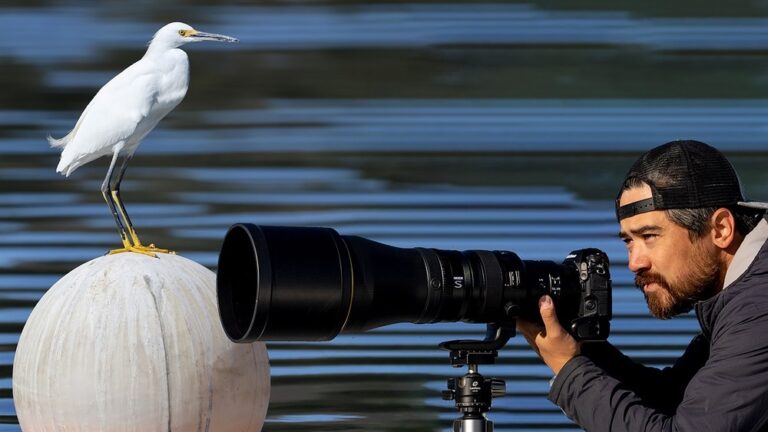A Baby Bird Falls From Its Nest
Have you ever seen a tiny baby bird fall from its nest? It’s a moment that can make your heart race and your mind rush with questions.
What should you do? Is the bird in danger? You might feel unsure or worried, wondering how to help without causing harm. You’ll discover simple, clear steps to protect that little life and the surprising truths about baby birds and their nests.
Keep reading—you’ll learn exactly how your actions can make a difference when a baby bird needs you most.
Causes Of Falling
Baby birds sometimes fall from their nests. Understanding why this happens helps us protect them better. Several causes can lead to these falls. Some relate to the nest itself. Others involve the parents or the environment.
Nest Instability
Nests can be unstable or weak. Strong winds may shake or break them. Some nests are built on thin branches. These cannot hold heavy baby birds well. Poor construction can cause the nest to fall apart.
Parental Activity
Parents move around a lot to feed their young. Their movements can jostle the babies. Sometimes, a baby bird slips while trying to move. Parents may accidentally push chicks out while landing or taking off.
Environmental Factors
Weather plays a big role in nest safety. Heavy rain can soak the nest and make it fragile. Strong storms may blow baby birds out. Predators nearby can cause panic, leading to falls.

Credit: www.reddit.com
Identifying A Fallen Baby Bird
Finding a baby bird on the ground can be worrying. It is important to know if the bird needs help or if it is safe to leave it alone. Identifying a fallen baby bird helps you decide the right action. This section explains how to check for injuries, consider the bird’s age and species, and tell the difference between nestlings and fledglings.
Signs Of Injury
Look for visible wounds like cuts or bleeding. Check if the bird is moving its wings and legs. A bird that does not respond or is very weak might be hurt. Watch for unusual breathing or swelling. These signs mean the bird needs care from a wildlife expert.
Age And Species Considerations
Baby birds vary by age and type. Some birds leave the nest early, while others stay longer. Knowing the species helps understand its behavior and needs. Young birds still covered in down feathers are usually very young. Older birds with feathers might be closer to flying.
Distinguishing Nestlings From Fledglings
Nestlings have few feathers and closed or barely open eyes. They depend fully on their parents for food and warmth. Fledglings have feathers and can hop or flutter. They may stay on the ground as they learn to fly. Fledglings often do not need rescue unless hurt.
When To Intervene
Knowing when to help a baby bird that fell from its nest is very important. Acting too fast or too late can harm the bird. This section explains how to decide the right time to step in.
Assessing Immediate Danger
First, check if the baby bird is in danger. Look for predators like cats or dogs nearby. See if the bird is injured or weak. If it is safe and looks healthy, it may be best to leave it alone. Birds often survive outside the nest for a while.
Checking For Parental Presence
Watch the area for at least an hour. See if the parent birds come back to feed or protect the chick. Parents sometimes leave the baby alone for short times. If the parents return, do not disturb the bird. If no parent comes, the bird might need help.
Legal And Ethical Guidelines
Some birds are protected by law. It is illegal to take wild birds without permission. Contact local wildlife authorities before moving the bird. They can give the best advice. Helping the bird without knowledge can cause more harm than good.

Credit: www.wikihow.com
Safe Handling Tips
Handling a baby bird that has fallen from its nest needs care and caution. Safe handling helps protect the bird and increases its chance of survival. Follow these tips for gentle and safe support.
Approaching The Bird
Move slowly and quietly toward the bird. Sudden moves can scare it. Keep your hands low and calm. Speak softly or stay silent to avoid stress. Watch the bird’s reactions before touching.
Using Protective Gear
Wear gloves to protect yourself and the bird. Thin gloves work best to keep a gentle touch. Avoid strong smells like perfumes on your hands. Use a soft cloth or towel to pick up the bird. This prevents injury and keeps the bird calm.
Minimizing Stress
Keep the bird in a warm, quiet place. Avoid loud noises and bright lights. Limit handling time to reduce fear. Hold the bird gently but firmly to prevent escape. Place it back in the nest if safe or contact a wildlife expert quickly.
Reuniting With The Nest
Reuniting a baby bird with its nest is important for its safety and growth. The nest is where the baby bird gets warmth and food from its parents. Bringing the bird back quickly can save its life. Careful steps help ensure the bird returns safely without stress.
Locating The Original Nest
First, find the nest where the baby bird fell from. Look around the tree or bush nearby. The nest is often well hidden in branches or leaves. Watch for adult birds flying to and from a spot. This helps confirm the nest’s location. Avoid touching the nest too much to keep it safe.
Placing The Bird Back
Gently pick up the baby bird with clean hands. Place it carefully back inside the nest. Make sure the bird is secure and not at risk of falling again. Do not try to clean or feed the bird yourself. The parents will take care of feeding and cleaning.
Monitoring Parental Response
Observe from a distance if the parents return to the nest. They usually come back to feed and protect the baby. If parents ignore the bird, it might need expert help. Do not stay near the nest too long. This helps avoid scaring the adult birds away.
Alternatives When Nest Reunion Fails
Sometimes a baby bird cannot return to its nest. It may be lost or the nest may be damaged. In these cases, there are other ways to help the bird survive. Acting quickly is very important. The bird needs warmth, safety, and food.
Creating A Temporary Shelter
Find a small box or container with holes for air. Line it with soft cloth or paper towels. Keep the bird inside, away from pets and loud noise. Place the shelter in a quiet, warm spot. Do not use cotton or anything that can tangle the bird’s feet.
Contacting Wildlife Experts
Call local animal rescue or wildlife centers for advice. They have experience in caring for baby birds. Provide details about the bird’s condition and location. Experts can guide you on the next steps. They may come to pick up the bird or tell you how to care for it.
Feeding And Care Basics
Baby birds need special food, not bread or milk. Use soaked dog or cat food, or commercial baby bird formula. Feed small amounts with a dropper or tiny spoon. Keep the bird warm but not hot. Avoid handling too much to reduce stress and injury.
Preventing Future Falls
Baby birds falling from nests can be dangerous for their survival. Taking steps to prevent future falls helps protect these fragile lives. Small actions can make a big difference in keeping young birds safe and secure.
Nest Protection Strategies
Placing birdhouses in safe spots reduces risks. Avoid areas with strong winds or heavy traffic. Use materials that shield nests from rain and predators. Check nests gently without disturbing the birds.
Habitat Preservation
Preserve trees and shrubs where birds build nests. Avoid cutting branches during nesting season. Keep natural spaces clean and free of harmful chemicals. Healthy habitats offer better shelter and food for baby birds.
Community Awareness
Teach neighbors and children about bird safety. Share tips on how to avoid touching or moving nests. Encourage watching birds from a distance. Awareness helps protect birds across neighborhoods and parks.

Credit: www.flickr.com
How Smart Pets Lover Can Help You with A Baby Bird Falls From Its Nest
Turning a Fallen Baby Bird Incident into a Learning Moment
When a baby bird falls from its nest, it’s natural to feel concerned and eager to help. Beyond the immediate care—like identifying a fallen baby bird and knowing when to intervene—these moments offer a unique chance to deepen our understanding of wildlife and responsible pet care. Observing the causes of falling, such as weather or nest disturbances, can teach us how to better protect natural habitats around our homes.
For pet parents and animal lovers, this experience highlights the delicate balance between intervention and letting nature take its course. It’s a reminder to handle such situations with gentle hands and patience, echoing the care we give to our dogs, cats, or even birds. At Smart Pets Lover, we believe every chirp tells a story that connects us closer to the animal world.
- Keep local wildlife rescue contacts handy as a resource for uncertain situations.
- Use this opportunity to educate family members about wildlife safety and empathy.
- Reflect on how preventing future falls can contribute to a safer environment for all creatures.
By embracing these moments thoughtfully, we not only support the little lives in our backyards but also grow as compassionate, informed pet parents—making every wag, purr, and chirp truly meaningful.
Frequently Asked Questions
What Should I Do If A Baby Bird Falls From Its Nest?
Carefully place the baby bird back in its nest if possible. If the nest is unreachable, create a makeshift nest nearby. Avoid handling the bird too much to prevent stress and contamination.
Can I Keep A Fallen Baby Bird As A Pet?
It is best not to keep wild baby birds as pets. They need specific care and their parents’ presence to survive. Contact a wildlife rehabilitator if the bird appears injured or abandoned.
How Do I Know If A Baby Bird Needs Help?
If the bird is injured, cold, or alone for a long time, it needs help. Watch for signs like lethargy, visible wounds, or persistent distress calls. Contact a professional for guidance.
Will The Mother Bird Come Back For A Fallen Chick?
Yes, mother birds usually continue to care for fallen chicks. They rely on calls to locate and feed them. Avoid disturbing the bird or nest to ensure the parents return.
Conclusion
A baby bird falling from its nest is a common sight. Nature has its way of teaching survival. Sometimes, the parents still care for their young on the ground. People can help by placing the bird back safely. Patience and gentle actions matter most in these moments.
Watching a baby bird grow is a small joy. It reminds us of life’s fragile beauty. Every creature has a chance to thrive with care. Simple acts can make a big difference in nature.

